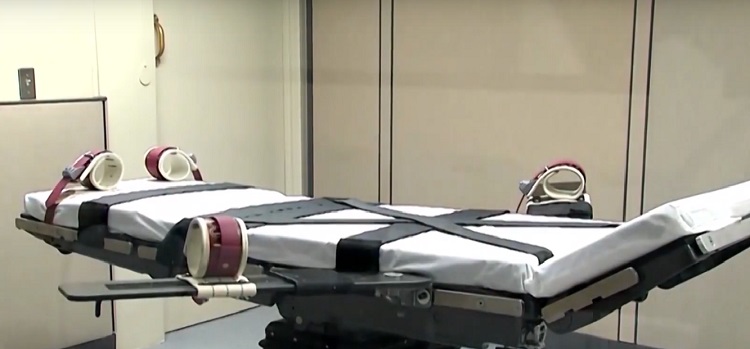Alabama is pursuing a second execution using nitrogen gas, following its recent controversial use of this method for the first time.
On Wednesday, the office of Alabama Attorney General Steve Marshall petitioned the Alabama Supreme Court to schedule an execution date for Alan Eugene Miller.
The state intends to carry out Miller’s execution by nitrogen hypoxia.
Miller, now aged 59, was convicted for the killings of three individuals in two workplace shootings in suburban Birmingham in 1999.
This request for an execution date comes amid ongoing debates between the state and advocates regarding the events surrounding Alabama’s initial execution using nitrogen.
During the execution of Kenneth Smith on January 25, he experienced shaking and convulsions resembling seizure-like movements for several minutes while on the death chamber gurney.
Alabama Backs Nitrogen Gas Executions Amid Criticism

Subsequently, Alabama has extended assistance to other states interested in conducting executions through the use of nitrogen gas, which Alabama has described as “the most painless and humane method of execution known to man.”
However, this method has faced condemnation from human rights groups, which deem it cruel and torturous.
Marshall asserted that the execution was executed flawlessly and emphasized the state’s intention to pursue further death penalties utilizing nitrogen gas.
Following Smith’s execution, Marshall stated that nitrogen hypoxia had transitioned from an untested method to a validated one.
He extended assistance to other states contemplating the method.
However, a lawsuit filed by another death row inmate aiming to halt the application of nitrogen gas argued that eyewitness reports indicated Smith’s execution was a flawed “human experiment.”
On January 25, Alabama executed Kenneth Smith, a convicted murderer, using nitrogen gas, during which Smith attempted to hold his breath as he was deprived of oxygen by the executioners.
